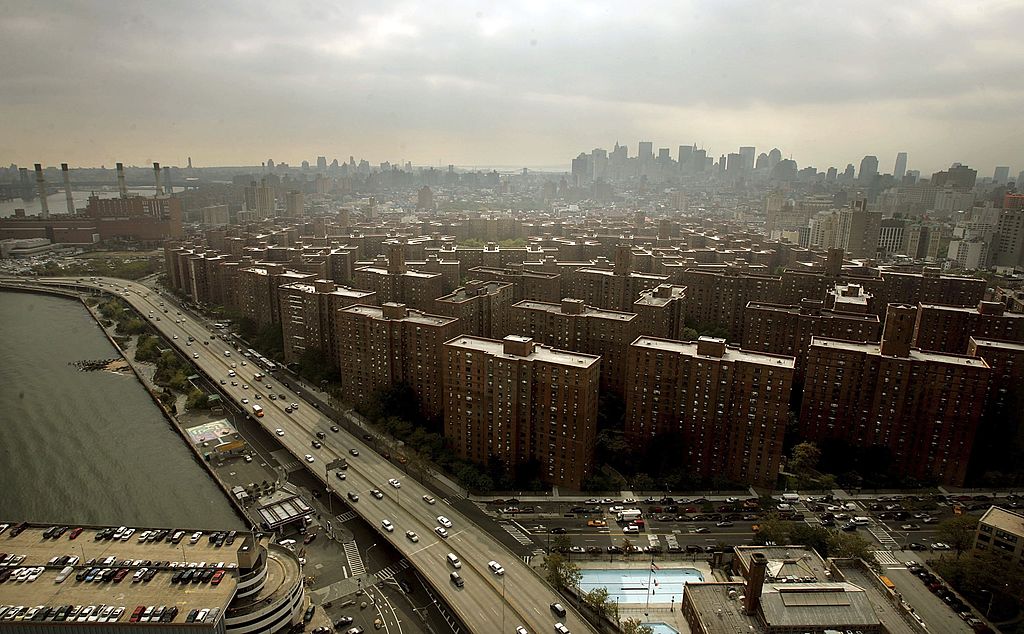The end of eviction moratoriums and unemployment boosts are set to disproportionately oust black renters


A free daily email with the biggest news stories of the day – and the best features from TheWeek.com
You are now subscribed
Your newsletter sign-up was successful
The end of COVID-19 relief is set to bring another crisis to black Americans.
The federal CARES Act placed a national moratorium on filing eviction actions, as well as boosted unemployment payouts, but those protections are both set to expire in a few weeks. And since black and Latinx Americans are more than twice as likely to rent as white people, they're disproportionately likely to be forced out of their homes at the end of July, Politico reports.
More than 40 million Americans have filed for unemployment benefits since the coronavirus started shutting down businesses across the U.S., leading Congress to institute a $600 boost to unemployment checks and ban new eviction orders for certain kinds of housing. Some cities and states expanded that moratorium to more types of housing, and while some instituted rent freezes, back rent will still have to be paid once the freezes expire.
The Week
Escape your echo chamber. Get the facts behind the news, plus analysis from multiple perspectives.

Sign up for The Week's Free Newsletters
From our morning news briefing to a weekly Good News Newsletter, get the best of The Week delivered directly to your inbox.
From our morning news briefing to a weekly Good News Newsletter, get the best of The Week delivered directly to your inbox.
A full quarter of black renters used those benefits last month, either deferring or not paying their rent, an Urban Institute analysis of Census data shows. In contrast, just 14 percent of white renters did the same. Even though the COVID-19 pandemic is still happening, and though the economy has only started to turn toward recovery, federal leaders have shown no sign of extending benefits further. It's all shaping up to put even more strain on America's homeless shelter system and send housing courts into overdrive, Axios reports, as well as expose the already-rampant shortage of affordable housing throughout the U.S.
A free daily email with the biggest news stories of the day – and the best features from TheWeek.com
Kathryn is a graduate of Syracuse University, with degrees in magazine journalism and information technology, along with hours to earn another degree after working at SU's independent paper The Daily Orange. She's currently recovering from a horse addiction while living in New York City, and likes to share her extremely dry sense of humor on Twitter.
-
 Political cartoons for February 16
Political cartoons for February 16Cartoons Monday’s political cartoons include President's Day, a valentine from the Epstein files, and more
-
 Regent Hong Kong: a tranquil haven with a prime waterfront spot
Regent Hong Kong: a tranquil haven with a prime waterfront spotThe Week Recommends The trendy hotel recently underwent an extensive two-year revamp
-
 The problem with diagnosing profound autism
The problem with diagnosing profound autismThe Explainer Experts are reconsidering the idea of autism as a spectrum, which could impact diagnoses and policy making for the condition
-
 Nobody seems surprised Wagner's Prigozhin died under suspicious circumstances
Nobody seems surprised Wagner's Prigozhin died under suspicious circumstancesSpeed Read
-
 Western mountain climbers allegedly left Pakistani porter to die on K2
Western mountain climbers allegedly left Pakistani porter to die on K2Speed Read
-
 'Circular saw blades' divide controversial Rio Grande buoys installed by Texas governor
'Circular saw blades' divide controversial Rio Grande buoys installed by Texas governorSpeed Read
-
 Los Angeles city workers stage 1-day walkout over labor conditions
Los Angeles city workers stage 1-day walkout over labor conditionsSpeed Read
-
 Mega Millions jackpot climbs to an estimated $1.55 billion
Mega Millions jackpot climbs to an estimated $1.55 billionSpeed Read
-
 Bangladesh dealing with worst dengue fever outbreak on record
Bangladesh dealing with worst dengue fever outbreak on recordSpeed Read
-
 Glacial outburst flooding in Juneau destroys homes
Glacial outburst flooding in Juneau destroys homesSpeed Read
-
 Scotland seeking 'monster hunters' to search for fabled Loch Ness creature
Scotland seeking 'monster hunters' to search for fabled Loch Ness creatureSpeed Read
